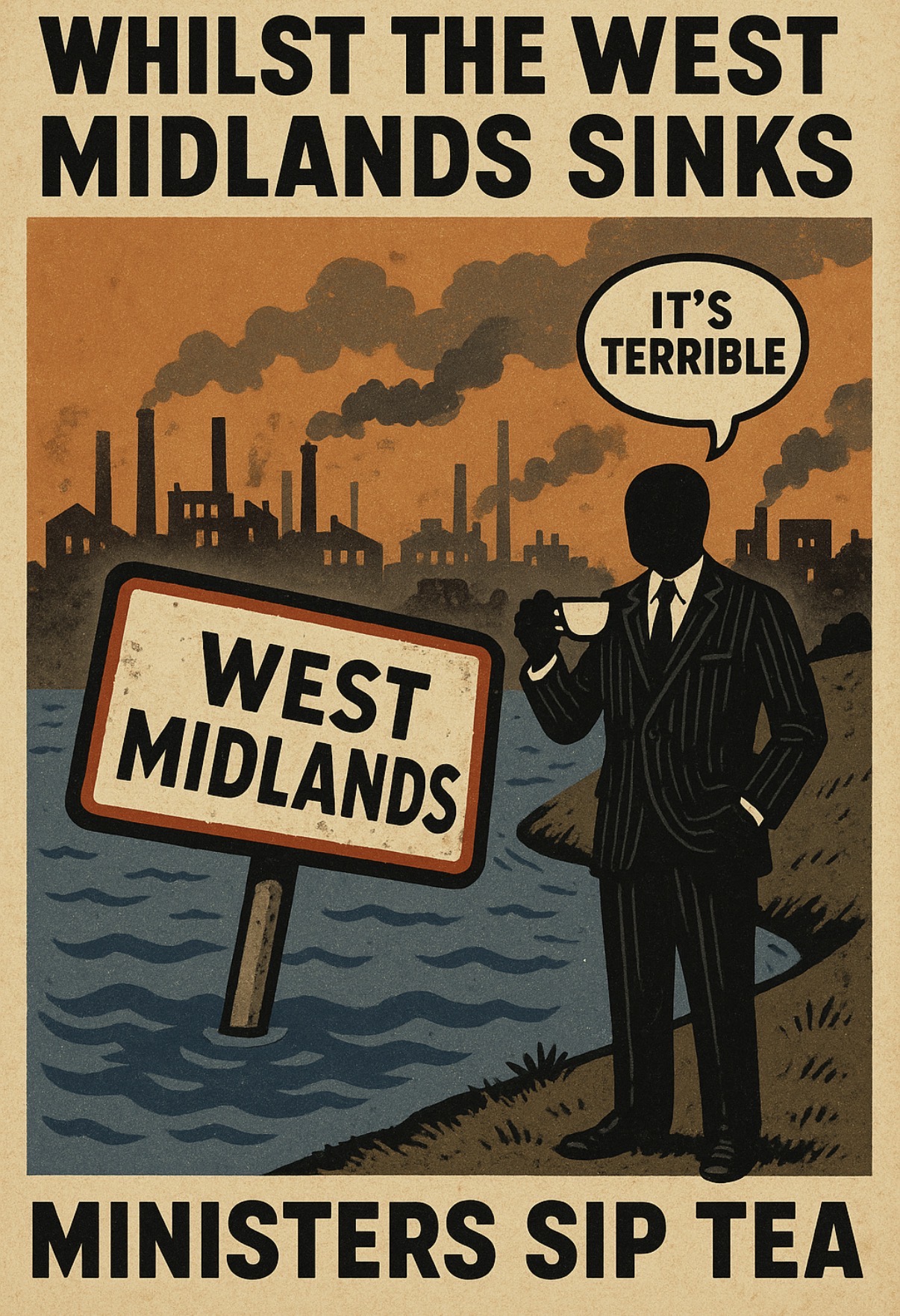Rudderless Govt dithers as West Midlands confronts real-life challenge
Factories halted, supply chains collapsing, and all we get from Westminster is waffle and photo-ops. Jaguar Land Rover, the pride of our region, has been brought to its knees by a cyber strike, yet ministers mutter platitudes while Professor David Bailey sets out clear solutions. The Midlands needs action, not another photo opportunity.
JLR has been forced to stop production across Solihull, Wolverhampton and Halewood. Tens of thousands of vehicles stand unbuilt, costing around £120 million in lost profit and more than £1.7 billion in lost revenue already. For a company of JLR’s size, survival is likely. For its suppliers, many small and medium firms, this shock could be fatal.
The impact is brutally local. Apprenticeships are paused, parts makers in the Black Country face unpaid invoices, and small cafes and pubs outside plant gates see fewer customers by the day. When production lines stall here, entire communities feel it. The Midlands has been Britain’s manufacturing heart for generations; watching it paralysed is like watching the region itself put on pause.
Words mean nothing
And what do ministers do? They shuffle into TV studios, shake their heads and say it’s “terrible.” Yes, we know it’s terrible. What nobody has heard is a single concrete plan. A minister on £93,000 a year, stepping out of a chauffeur-driven car, telling us he’s “concerned” is not leadership. It’s theatre. If they can’t name measures, timetables and outcomes, they should get out of the way and let somebody else do it.
Into this vacuum steps Professor David Bailey of the University of Birmingham. Unlike the sofa-sitters, he is trusted globally for his expertise in automotive economics. He has studied plant closures, trade shocks and policy failures, and he knows what keeps factories alive. When Bailey talks, the Midlands listens — and governments abroad do too.
His prescription is straightforward. Guarantee loans to shore up suppliers. Offer a furlough-style scheme or short-time working to preserve jobs and skills. Mobilise cyber specialists to harden systems. Other nations, like Germany, already have these mechanisms in place; Britain does not. Bailey is not asking for miracles, only for ministers to use the tools available to prevent lasting damage.
But let us be blunt: words alone will not stop attacks on our industry. If foreign actors are behind this, Britain must respond with teeth. That means the NCSC and intelligence agencies cutting their networks, freezing their assets, hitting their funding, and turning safe havens into traps. Use diplomacy, sanctions and prosecutions so that those who wreck our factories pay with their pockets and reputations, not with the licence to kill. Enough of ministers muttering about how “awful” it all is. We need published timelines for liquidity support, named guarantees for Tier 1 and Tier 2 suppliers, a crisis cell that delivers decisions not soundbites, and legally backed cyber disruption of those who attack us. That is how a civilised state fights back.
Indecision will be costly
The cost of dithering is clear. Once suppliers go under, skills are lost forever. Once apprenticeships are cancelled, a generation drifts away from manufacturing. Once local firms close, communities hollow out. Delay now means paying far more later in benefits, retraining and broken towns. Doing nothing is not cheap; it is ruinously expensive.
That is why the Midlands must demand answers. MPs, ministers and the Treasury must be pressed until they provide details: what support is coming, when, and to whom. Not “options on the table,” but actions on the ground. This region has been fobbed off before. We cannot let it happen again.
The electorate will not forget
We built Britain’s manufacturing backbone. We will not watch it rot while Westminster poses for the cameras. Professor Bailey has done the homework, issued the warning and provided the plan. If ministers refuse to act, then those who make this country work will make their voices heard at the ballot box. The Midlands deserves better — and that better starts with action.
Artwork all Olleys







